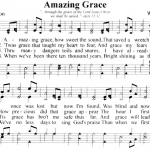In 2014, I’m reading and blogging through Pope Francis/Cardinal Bergoglio’s Open Mind, Faithful Heart: Reflections on Following Jesus. Every Monday, I’ll be writing about the next meditation in the book, so you’re welcome to peruse them all and/or read along.

When Pope Francis described the experiences of the prophets, an inheritance to which we are called, I didn’t recognize myself in this description of their plight.
These experiences of our ancestors in the faith should encourage us greatly. When we realize we are chosen, we feel that the weight on us is too great, and we experience fear–in some cases even panic. That is the beginning of the cross. At the same time, we feel deeply drawn by the Lord who by his very summons seduces us to follow him with a fire burning in our heart (cf. Jer 20:7-18). These two feelings are joined together because since the days of the patriarchs they have prefigured the abandonment that Christ felt on the cross as he fulfilled the Father’s will to the very end. The mission places us perforce upon the wood of the cross, for the cross is the sign that the mission has been received by the Spirit of God and not according the flesh.
Prophets feel they are far from God when they are overextended in His service, and they turn to Him for help, but are left waiting for a reply. I almost never feel this kind of abandonment, because I tend to abandon first. When I’m in trouble, I tend to emulate what Colonel Graff wanted for Ender:
Graff: “He can never come to believe that anybody will ever help him out, ever. If he once thinks there’s an easy way out, he’s wrecked.”
Anderson: “You’re right. That would be terrible, if he believed he had a friend.”
Graff: “He can have friends. It’s parents he can’t have.”
Call it pride or responsibility or learning the wrong lessons from group projects at school (“If you can’t make your partners behave, Leah, you’ll have to work alone”) or a very steady diet of fantasy and science fiction growing up, but I’m very reluctant to make plans that depend on someone else. And, when I do, I like to avoid the imposition of an open-ended ask, but instead offer a precis of what I need, how I’ve limited the ask, and how very all right it will be if the other person is unavailable.
This is all useful, to a point. My plans have fewer points of failure than most people I know and I think I’m less prone than the median person to “trying to try.” But I miss more chances to invite other people into my difficulties and use snags as an opportunity for intimacy. And that’s particularly important in a relationship with God. Feeling neglected by God presupposes trust in and dependence on him, so shaking your fist at the heavens might represent more of a connection than knuckling down to sort things out yourself.
You can’t fear that your prayers aren’t being answered if you never actually imitate Christ and call “Abba, Abba.“












